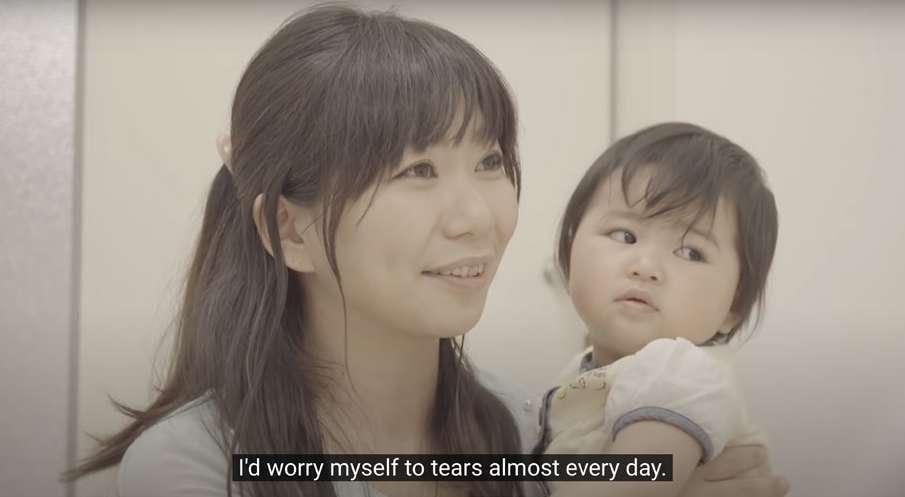Secret Lives of Singaporeans
January 2023 edition: Gen Z parents



Secret Lives of Singaporeans is a collection of marketer-friendly briefs on the fascinating people of the little red dot, by planners and PR consultants from the big red agency that is Ogilvy. In an industry awash with capabilitiesfirst “thought leadership”, it goes back to the basics of consumer-first, actionable inspiration to DO.
In this deep dive, we look at the emerging group of gen Z parents.

It’s easy to think of gen Z consumers as being almost inconceivably young. Born between 1997 and 2012, they are aged all of a tender ten to a seasoned 25 in 2022. But a growing number of them are now having children of their own. The number of gen Z parents in Singapore has more than tripled from 25,000 in 2020 to 80,000 in 2022
(source: GlobalWebIndex).


Their numbers and economic value will only grow as they start the next wave of families, get more established in their careers, and become prime marketing targets in the next five to ten years.
Ogilvy Singapore recognises that by now, marketers are likely familiar with millennial parents and have a surfeit of literature on gen Zs, but don’t know much about the emerging segment of gen Z parents. In what ways are gen Z parents similar to or different from other parents and other gen Zs, and how should brands engage them?
To help these marketers, this playbook uses proprietary qualitative and quantitative research on gen Z parents, gen Z non-parents and millennial parents to address:
CHAPTER A
Do life goals and dreams differ between generations?
CHAPTER B
Do parenting attitudes and behaviours differ between generations?
CHAPTER C
Does becoming parents change gen Zs’ priorities and behaviours?
The output strives to be actionable, not academic. Each chapter contains several key themes, each structured as:
Findings from research
Contextualising these findings against existing research or cultural knowledge
Practical recommendations or thought-starters for marketers
Note: Given the low incidence rate of gen Z parents, quantitative findings are based on a small sample size of n=59.
(i) It would not be meaningful to split the findings further, for example by gender; and
(ii) Findings should be taken as directional guidance and not definitive representation.
Gen Z and millennial consumers are united in being relentlessly pragmatic about the things they find most important in life, a marked and accelerated shift from their priorities pre-pandemic.
They are also – perhaps surprisingly – traditional in their views of ideals for their own families, though gen Z parents are more accepting of non-traditional families than their millennial counterparts are.
Further from home and shifting to a long-term view, gen Z parents in particular, have a heightened sense of care for the environment compared to other segments.
Cost of living and personal safety are among the three things each segment find most important in life.
“I am afraid that I can’t afford to pay for the hospital bills and checkups on top of my own expenses.”
“Having enough finances to tide me through unexpected circumstances is important.”
It took over 20 years for the 1990s’ Singaporean “5Cs” materialistic ideal of “cash, credit card, condominium, country club and car” to evolve into a more balanced, if still idealistic, “new 5Cs”: “cash, career, cultural proficiency, credibility and convenience” (Tigerhall, 2019). It’s now taken just three years of a global pandemic and its accompanying economic conditions and sentiment, for priorities to swing in the direction of pragmatism across all segments.
Whether there will be a return to any number of Cs when economic conditions improve (which will likely be in several years, not months) remains to be seen. But for now, pragmatic sensibility is the flavour of the day.

Parents – regardless of generation – still consistently hold traditional views of family ideals for themselves and their children.
OF MILLENNIAL PARENTS
OF GEN Z PARENTS AND ACROSS SEGMENTS
76%
75% 4/5
65%
81%
OF GEN Z PARENTS AND
VS VS
76% OF NON-GEN Z PARENTS
OF MILLENNIAL PARENTS
61%
OF NON-GEN Z PARENTS
AGREED THAT IT IS IMPORTANT FOR A COUPLE TO GET MARRIED AND SETTLE DOWN.
AGREED THAT HAVING CHILDREN WILL COMPLETE THE FAMILY.
AGREED THAT IT IS IMPORTANT FOR CHILDREN TO HAVE A TWO-PARENT FAMILY, AND THAT IT IS IMPORTANT FOR A CHILD’S PARENTS TO BE MARRIED.
But when it comes to looking at others in society, Gen Z parents are open and accepting of a range of family structures.
“I do see more single mothers than fathers, but I don’t really care, single mum or single dad, they are all the same.”
Male, 25, gen Z parent
I have a lot of Gen Z single mums reach out to me on Instagram and TikTok. They need a guy’s opinion, and they see me as someone they can ask advice from.”
Male, 21, gen Z parent
Gen Z parents’ acceptance of what others’ family structures could look like might not be a Singapore-only dynamic; Kantar’s 2023 Youth Outlook: The Facts of Lifestage report also found that gen Zs in the US are also more accepting of differences than their predecessors were.
When communicating with gen Z parents, there’s no need to sweep the reality that society has different family types, under the carpet. Just be careful not to come across as encouraging them to deviate from their own family ideals.
Care for the environment matters more to gen Z parents than it does to gen Z non-parents and millennial parents.
OF GEN Z PARENTS AND OF GEN Z NON-PARENTS THINK THAT CARING FOR THE ENVIRONMENT IS VERY IMPORTANT IN LIFE.
VS
16%
31% 19% OF MILLENNIAL PARENTS
“When you shop at Amazon, you can choose between two different packaging (sustainable; frustration-free versus plastic). I choose the sustainable option due to the functionality of it.”
Female, 25, gen Z parent
Gen Zs and millennials are known to be more environmentallyconscious than previous generations: Deloitte’s global survey shows three in four of them think “the world is at a tipping point in responding to climate change and the future could go either way”. The heightened importance to gen Z parents suggests they might be taking a long-term view for their children.

Running a sustainability campaign?

“Act for your children’s future” might well be the most compelling motivator for gen Z parents.
That said, don’t mistake them for starry-eyed, purpose-gravitating idealists. Theme A1 talks about how they are pragmatic in their overall outlook, while theme B5 shows that they are not likely to buy something just because of brand purpose.
There are some areas in which gen Z parents are clearly different from their millennial predecessors. They have more democratic relationships with their children, and are more open to listening to them.
They are also far more likely to seek advice from parenting influencers they don’t know, than from people they do know –apart from their own parents.
But some fundamentals don’t change. At the macro level, millennial parents’ shift towards prioritising happiness over success continues with gen Z parents. Both segments are also big believers in the value of education – though with an open-ended view of the career paths this could lead to for their children. At the more micro level, in their day-to-day purchase decisions, safety overrides all other considerations.
Parent-child relationships of this generation are evolving from an authoritarian “you listen to me” to a more democratic, partnership-based “I’m listening to you”.
84% 8%
OF MILLENNIAL PARENTS OF GEN Z PARENTS
AGREE OR STRONGLY AGREE THAT “I DECIDE WHAT IS BEST FOR MY CHILD/CHILDREN”
In a similar vein, gen Z parents’ decisions are guided by what interests their children.
VS VS
75% 1%
OF GEN Z PARENTS OF MILLENNIAL PARENTS
FOCUS MORE ON THEIR CHILDREN’S INTERESTS AND HOBBIES THAN THEIR OWN PARENTS DID FOR THEM.
“I want my child to consider me as a friend.”
Female, 21, gen Z parent
“This is what makes us different from our parents. We give our kids choices. They are the decision makers of their lives; we are the guardians.”
Female, 30, Millennial parent
This is a far cry from the parent-child dynamics of the 1980s, when older millennials were growing up and their parents’ word was law. Local parenting websites advise that this new “gentle parenting” dynamic requires navigating issues such as setting boundaries, being the disciplinarian when required, and whether there is an optimal age at which it’s okay to start being friends with one’s children.

Can brands targeting gen Z parents give them guidance on how to balance the tensions of being a parent and being a friend to their children?
Separately: if children get to make choices, can – and should, given it might be ethically and operationally problematic –brands market to them directly?

Both gen Z and millennial parents see their own parents as their most important source of parenting information, though not without some differences of opinion.
Sources of parenting information, ranked by importance (1 being highest)
Your parents
Parenting influencers you don’t know personally
Fellow parents you know personally, or friends of friends
Online communities (e.g. Facebook, WhatsApp and Telegram groups)
Official sources on the internet
Millennial parents
Gen Z parents
“It’s been so long. My in-laws and parents have forgotten how to parent and raise a child!”
Female, 21, gen Z parent
Both gen Z and millennial parents see their own parents as their most important source of parenting information, though not without some differences of opinion.
Sources of parenting information, ranked by importance (1 being highest)
Your parents
Parenting influencers you don’t know personally
Fellow parents you know personally, or friends of friends
Online communities (e.g. Facebook, WhatsApp and Telegram groups)
Official sources on the internet
Segments
Millennial parents
Gen Z parents
Where they really diverge, though, is in who they turn to next:
• Millennial parents rank fellow parents they know personally/friends of friends as their second most important source of information.
• But gen Z parents are much more likely to turn to parenting influencers they don’t know personally, as their second-top source.
“I have a lot of Gen Z single mums reach out to me on Instagram and TikTok. They need a guy’s opinion, and they see me as someone they can ask advice from.”
Male, 21, gen Z parent
Taken at face value, it might seem like brands targeting gen Z parents should unquestioningly double down on parenting influencers. But a more critical view, aided by qualitative research and existing literature, suggests this reliance on parenting influencers could be because gen Z parents don’t have many peers they can look to yet.

For those who know such peers, “I ask real people like my cousins for advice” (male, 21, gen Z parent) and “I usually ask other adults or friends who are parents” (female, 21, gen Z parent).
For those who don’t, influencers are an accessible source of advice. But gen Zs know the content these influencers offer tends to portray a curated, filtered – and possibly inauthentic – image of parenting. A gen Z parent respondent, 25, pointed out that “a lot of influencers and reviews are sponsored.” Similarly, Vice’s We the Family: How Gen Z is Rewriting The Rules of Parenting talks about the growth of niche communities and how gen Z parents are interested in connecting with peers who have specific life experiences.
Brands can cultivate communities of gen Z parents, to pair the accessibility of influencers with the authenticity of people they know. It’s not a new tactic, but it is a still-unmet need of a new generation with different dynamics from their predecessors.

Above all (yes, even success and riches!), both gen Z and millennial parents want their children to be happy.
THE ONE THING THEY MOST WANT THEIR CHILDREN TO BE WHEN THEY GROW UP
“My idea of an ideal family is one where my kid feels happy and safe doing what they want.”
“I hope my child can be healthy and happy every day. That is my biggest hope for him.”
“As long as they can fend for themselves and be happy, they are good to go.”
Female, 36, millennial parent Gen Z parent, open-ended survey response Gen Z parent, open-ended survey response
This desire for happiness over traditional definitions of success isn’t limited to their children. Wunderman Thompson’s Generation Z: APAC report shows happiness is also gen Zs’ top wish for themselves.
Neither is it a Singapore-only dynamic. Ogilvy’s US white paper on gen Zs suggests that “accomplishments are no longer characterised only by institutional successes such as being a team or house captain, a 4.0 student, or a club leader.”

As gen Z parents grow in number in the coming years, expect to shift the spotlight from achievement-focused portrayals and promises – whether academic, professional or sporting – to slightly softer, more happiness-centred ones.

While happiness has bumped success to second place, it doesn’t mean that Singapore parents – whether you call them tiger moms or loving lions – are ready to exit stage left. They see providing a good education as their duty, and their emphasis on it is only growing with each passing generation.
10% OF GEN Z PARENTS
2% OF MILLENNIAL PARENTS
THINK THEIR EMPHASIS ON EDUCATION AND STUDYING FOR THEIR CHILDREN IS GREATER THAN THEIR PARENTS’ WAS FOR THEM.
“Parents should give their children the right goals and education when they are young.”
Gen Z parent, open-ended survey response
“The competition will become more and more fierce.”
Gen Z parent, open-ended survey response
“I want them to achieve their goals, whatever they may be. We will support them.”
Gen Z parent, open-ended survey response
That said, young parents have a more open-ended view of the career paths such education should lead to. That path is their children’s to choose.
“I give him a choice to make his own decisions; I will just support. I want to be firm but not force him to do anything.”
Male, 25, gen Z parent
“The world is changing, there are always going to be new roles, I don’t see any career aspirations for my son.”
“I expect them to [do] their best and they can
[then] decide how they want to live their life.”
Female, 29, millennial parent Gen Z parent, open-ended survey response

While the means (education) remain consistent, the ends (career path) is quite a departure from traditional ideals of wanting children to become doctors, lawyers or the like. It could be because some of the jobs these parents themselves are in today, did not exist when they were growing up.
It’s an opportune time for education brands to emphasise their value is in imparting timeless fundamentals.
For both gen Z and millennial parents, safety is the foremost priority when choosing products for their children.
34% OF GEN Z PARENTS
36% OF MILLENNIAL PARENTS
CHOSE SAFETY AS A TOP-THREE FACTOR. PRICE DURABILITY PERFORMANCE BRAND SUSTAINABILITY DEI PRACTICES
That is far ahead of product attributes like price, durability, performance, purpose-linked considerations like a brand’s sustainability and DEI practices.
The deprioritisation of sustainability and DEI practices matches what DeVries Global found in its gen Z research – that Singaporeans are among the most apathetic in Southeast Asia when it comes to expecting brands to take a stance on current social issues.
On the other hand, the emphasis on safety could be because gen Z and millennial parents grew up with information access (with well-publicised scandals on contaminated food, exploding electronics, product recalls), as well as information cynicism (think: false claims, fake news and POFMA as part of their vernacular). They have been conditioned not to accept information at face value, and to check its source and veracity.

Gen Z and millennial parents do their homework, beginning their purchase decision-making journey long before they get to the shelf. Brands have to play the transparency and accountability game to assure them. Can they allow realtime reviews? Can they address concerns head-on, like McDonald’s did? Can they leverage Singapore’s reputation for stringent safety standards?
McDonald’s case study here

In short: yes. But because they belong to a generation credited with being more grown-up in their thinking than millennials were at the same age, the transition to “adulting” may not be as rude a shock to them as one might expect.
That said, they could do with a little help with their social life, selfidentity and career.
Becoming parents is unquestionably a turning point in gen Zs’ lives.
“I cried when I saw the results; it felt like time stopped. But I ditched my teenage life and learned how to accept fate and move on.”
Male, 21, gen Z parent
“I didn’t really have a direction in life, but having my child gave me one.”
Male, 25, gen Z parent
“Being a parent is very rewarding, especially seeing my child hit his developmental milestones like his first step and first word.”
Male, 25, gen Z parent
Kantar’s 2023 Youth Outlook: The Facts About Lifestage report found that unlike their millennial predecessors years ago, gen Z young adults embrace rather than put off responsibility. While the report is US-focused, it does suggest that parenting might be less of a shock to gen Zs’ systems and a 180-degree lifestyle change than it was to millennials’.
(iii) NOW WHAT
Brands should engage gen Z parents like they crave and are ready for, not reluctant to take on responsibility; more an invitation to step into a new world, than a gun to the head.

Gen Zs’ money habits change when they become parents. Who they spend on shifts from themselves to their families…
17%
36%
36% OF GEN-Z PARENTS OF GEN-Z PARENTS
ONLY AND ONLY OF GEN Z NON-PARENTS OF GEN Z NON-PARENTS SPEND MOSTLY ON THEMSELVES. BUY WHATEVER THEY WANT, AS LONG AS THEY CAN AFFORD IT.
22%
VS VS
And what they spend on shifts from indulgent expenses to responsible ones.
34% OF GEN-Z PARENTS
61% OF GEN Z NON-PARENTS
RANK FOOD AND NON-ALCOHOLIC BEVERAGES AMONG THE THREE THINGS THEY SPEND MOST ON
“I used to drink and hang out with my friends. But now I need to be responsible because I have to provide monthly maintenance.”
Male, 21, gen Z parent
15% OF GEN-Z PARENTS
30% OF GEN Z NON-PARENTS
RANK RECREATION AND CULTURE AMONG THE THREE THINGS THEY SPEND MOST ON
“I have to learn to budget and save more. I can’t do the whole partying and drinking any more.”
Male, 25, gen Z parent
And what they spend on shifts from indulgent expenses to responsible ones.
42% OF GEN Z PARENTS RANK HOUSING AND UTILITIES, HEALTH AND EDUCATION AMONG THE THREE THINGS THEY SPEND MOST ON,
COMPARED TO 21%, 30% AND 28% OF GEN Z NON-PARENTS FOR THE SAME ITEMS.
The one expense they notably don’t compromise on: travel.
29%
15% OF GEN Z PARENTS OF GEN Z NON-PARENTS VS
RANK TRAVEL AMONG THE TOP THREE THINGS THEY SPEND ON
That may indicate that interest in travel doesn’t change, just that parents pay more to bring their kids in tow.
Gen Z parents might take the transition to responsible spending reasonably smoothly because gen Zs in general are already more savvy than millennials are at budgeting and managing their finances (SingSaver, 2020).

Financial services and travel brands have the opportunity to widen their catchment, recruit gen Z parents from early on, and grow with them. Other brands may also want to align their incentive systems with gen Z parents’ need to see their own spending as responsible – for example, by offering them practical instead of braggable rewards.
Parenting doesn’t just change life for gen Zs, it changes life for the people around them.
“I bring my child along when I’m out with my friends. We visit cafes and chit chat.”
Female, 21, gen Z parent
“My friends adapted to my way of living. They come over to play board games or we go on hikes together instead.”
Male, 25, gen Z parent
Nobody teaches gen Z parents’ friends how to behave when they are suddenly “promoted” to “uncle” or “auntie” roles.
Can brands cater to and unlock these unwitting gen Z “uncles” and “aunties” as a market? Suggest milestone-appropriate gifts? Advise on how to be the cool family friends? Offer venues where adults can catch up over grown-up conversation without neglecting the children?

Gen Zs still steal time to be gen Zs.

“I have my me-time so I can still act my age with my friends and hang out with them.”
Male, 21, Gen Z parent
As P&G Japan’s “Mom’s first birthday” campaign noted in 2014, becoming parents often means that becomes their all-consuming identity. But that shouldn’t be the case.

While many brands will talk about taking a break with the family, there is also an opportunity to talk to gen Z parents about taking a break away from the family and be well, gen Zs.
P&G case study here
Career takes a backseat for gen Z parents.
14% OF GEN-Z PARENTS
28% OF GEN Z NON-PARENTS VALUE ESTABLISHING A GOOD CAREER
VS
“Having to work full-time and being a single parent takes a mental toll on me because I can’t really take a break. I don’t really think about ‘what’s next’ for my career.”
Male, 25, gen Z parent
That said, 24% of millennial parents also value establishing a good career, which suggests the deprioritisation of career could be temporary.
This could be because unlike millennial parents, gen Z parents don’t have the financial means and social support systems in place yet to provide childcare while they focus on work.
We’re all familiar with parental guilt, when work is put before children. But what about the reverse? Can employer brands stand out to gen Z parent employees by helping to assuage the career guilt of putting children before work?

To borrow quintessentially Singaporean expressions: Gen Z parents are the pioneers of their generation, who have entered or will enter parenthood and the workforce during the years that have been called the crisis of their generation. That presents challenges and opportunities
• In marketing to them as parents;
• In marketing to them as individuals;
• In marketing to them as employees;
• In marketing to adjacent groups like their friends;
• In both the short and long terms.
For today’s marketers, they – and not any passing trend, technology platform or tired buzzword –are arguably the most exciting development to watch and plan for in the coming years.
Hypotheses were developed based on a review of existing gen Z consumer research and exploratory in-depth interviews with gen Z parents (n=5) and millennial parents (n=5). These were then tested in and enriched with quantitative surveys with Singapore-resident gen Z parents (n=59), gen Z non-parents (n=104) and millennial parents with young children (n=201). Fieldwork was conducted in Q4 2022.
Past research referenced includes:
• Generation Z: APAC (Wunderman Thompson)
• The New Definition of 5Cs (Tigerhall)
• National Survey on National Values and Identity (Ipsos)
• Decoding the Gen Z Mind: What Brands Should Know When Navigating Purpose & Responsibility in Southeast Asia (DeVries Global)
• Gen Z Is Not Millennial Plus: Why They May Not Want To Work For You (Deloitte)
• Are You Team Cheugy Or Team Zoomer? (Kantar)
• We The Family: How Gen Z is Rewriting the Rules of Parenting (Vice)
• Gen Z Singaporeans Are Better At Saving Money and Budgeting For the Future Than Millennials (SingSaver)
• Striving For Balance, Advocating For Change: The Deloitte Global 2022 Gen Z & Millennial Survey (Deloitte)
• 2023 Youth Outlook: The Facts of Lifestage (Kantar US)
• For Gen Z, Brand Is What You Share, Not What You Sell (Ogilvy US)
Ogilvy Singapore is one of the largest marketing communications networks in the world. The company is comprised of industry-leading units in the following disciplines: advertising; public relations and public affairs; branding and identity; shopper and retail marketing; healthcare communications; direct, digital, promotion and relationship marketing; consulting, research and analytics capabilities; branded content and entertainment; and specialist communications. Ogilvy services Fortune Global 500 companies as well as local businesses through its network of more than 500 offices in 126 countries. The quality of our network is based on the strength of our international network, our local strength and depth across all communication disciplines, our culture of collaboration and our people.
Frederick Tong, Group Strategy Director
Daniel Liu, Group Strategy Director/Head of Data
Zhang Weitian, Strategist
Benecia Voon, Associate Strategist
Jason Hill, Chief Strategy Officer
Research partner: Pureprofile
Design and layout: Faith Low, Izz Bachtiar
Heartfelt thanks to all interviewees for sharing a slice of their lives with us.

